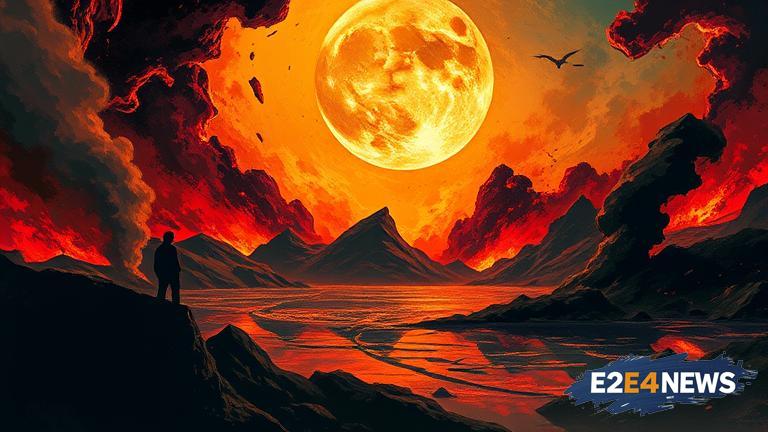The concept of a thousand years of darkness was first introduced by Ronald Reagan, the 40th President of the United States, in a speech he delivered in 1964. At the time, Reagan was warning about the dangers of communism and the potential for a global catastrophe if the spread of communist ideology was not halted. Fast forward to the present day, and it appears that Reagan’s warning is more relevant than ever. The world is facing numerous challenges, including the rise of authoritarian regimes, the erosion of civil liberties, and the increasing threat of global conflict. The COVID-19 pandemic has also had a profound impact on the world, leading to widespread economic disruption, social unrest, and a significant increase in government control over citizens’ lives. Furthermore, the proliferation of technology has created new avenues for surveillance and manipulation, allowing governments and corporations to exert unprecedented levels of control over individuals. The consequences of these trends are far-reaching and have the potential to lead to a dystopian future, where individual freedom and autonomy are severely curtailed. As the world becomes increasingly interconnected, the potential for global catastrophe also grows, whether it be through the spread of disease, the collapse of financial systems, or the outbreak of war. The warning signs are clear, and it is up to individuals to take action to prevent the onset of a thousand years of darkness. This can involve educating oneself about the issues, getting involved in local politics, and supporting organizations that promote freedom and democracy. It is also essential to recognize the importance of individual rights and freedoms, and to be vigilant in defending them against encroachment by governments and other powerful entities. The struggle for freedom and democracy is ongoing, and it requires the active participation of citizens to ensure that the values of liberty and justice are preserved. In addition to these efforts, it is crucial to promote critical thinking and media literacy, as these skills are essential for navigating the complex and often misleading information landscape of the modern world. By working together and supporting one another, individuals can help to create a brighter future, one that is characterized by freedom, prosperity, and peace. However, if the warning signs are ignored, and the trends of authoritarianism and control continue to escalate, the consequences could be catastrophic. The world could be plunged into a thousand years of darkness, a period of time marked by war, poverty, and oppression. It is a grim prospect, but one that can still be avoided if individuals take action to defend their rights and freedoms. The time to act is now, and the fate of humanity hangs in the balance. The future is uncertain, but one thing is clear: the choices we make today will have a profound impact on the world of tomorrow. As Reagan so eloquently put it, the struggle for freedom is ongoing, and it requires the active participation of citizens to ensure that the values of liberty and justice are preserved. The warning of a thousand years of darkness is a stark reminder of the importance of this struggle, and the need for individuals to remain vigilant in the face of threats to their freedom. In conclusion, the world is at a crossroads, and the path we choose will determine the course of human history. Will we succumb to the forces of darkness and oppression, or will we rise up to defend our rights and freedoms? The choice is ours, and the consequences of our decision will be far-reaching. The warning of a thousand years of darkness is a call to action, a reminder that the struggle for freedom is ongoing, and that individuals must remain vigilant in the face of threats to their liberty. By working together and supporting one another, we can create a brighter future, one that is characterized by freedom, prosperity, and peace. But if we fail to act, the consequences could be catastrophic, and the world could be plunged into a thousand years of darkness.
